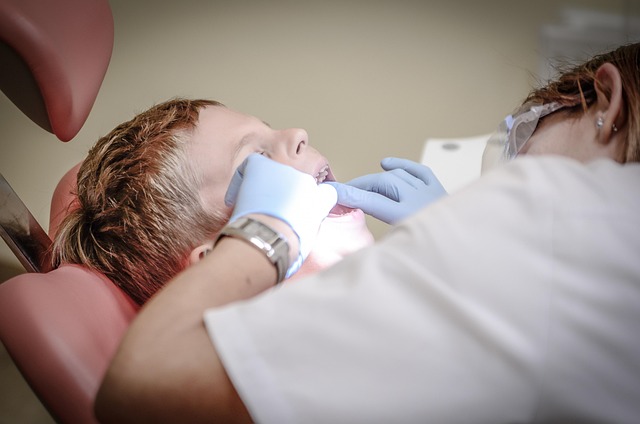Understanding Screwless Dental Implants and Cost Considerations
Screwless dental implants use a pressure-fit system instead of a screw to hold the tooth in place. This option may affect the cost per tooth and overall treatment plan. Learn how average dental implant pricing and potential drawbacks compare to more common implant types.

What Are Screwless Dental Implants and How Do They Work?
Screwless dental implants represent an evolution in implant dentistry, using friction-fit or press-fit technology to secure the crown to the implant instead of traditional screws. The implant post is still surgically placed into the jawbone and undergoes osseointegration (fusion with bone), similar to conventional implants. However, the difference lies in how the visible portion of the tooth connects to this base.
In traditional systems, a small screw secures the abutment and crown to the implant post. Screwless systems instead use precisely engineered components that lock together through pressure or friction. This design eliminates the access hole on the tooth’s surface that would otherwise be needed for the screw, potentially improving aesthetics in visible areas of the mouth. The pressure-fit connection creates a secure bond between components while allowing for easier removal if maintenance becomes necessary.
Dental Implants Cost Per Tooth Breakdown
Understanding the cost structure of dental implants helps patients prepare financially for this investment in oral health. A single dental implant typically consists of three components: the titanium implant post, the abutment, and the crown restoration.
For traditional screw-retained implants, the cost breakdown generally includes:
-
Implant post: $1,000-$2,000
-
Abutment: $300-$500
-
Crown: $1,000-$2,000
-
Additional procedures (extraction, bone grafting): $200-$3,000
Screwless systems often command a premium of approximately 10-20% over traditional implants due to their specialized components and precision engineering requirements. The overall cost for a single screwless dental implant typically ranges from $3,000 to $6,000, depending on geographic location, dentist expertise, and case complexity.
Average Cost of Dental Implants Guide
The national average cost for dental implants varies significantly based on several factors. Understanding these variables helps patients contextualize the estimates they receive during consultations.
Single-tooth implants in the United States typically cost between $3,000 and $5,000 including all components and standard procedures. Full-mouth restorations using implant-supported dentures or All-on-4® procedures range from $15,000 to $30,000 per arch. These figures represent complete treatment costs encompassing surgical placement, components, and restorations.
Geographic location significantly influences pricing, with major metropolitan areas typically commanding higher fees than rural locations. Specialist credentials also affect cost—procedures performed by prosthodontists or oral surgeons generally cost more than those done by general dentists with implant training.
Common Cons of Screwless Implants
Despite their advantages, screwless dental implants present several potential drawbacks that patients should consider before proceeding with treatment.
First, the proprietary nature of screwless systems can limit flexibility. If complications arise, patients may need to return to the same provider or find another dentist familiar with the specific system used. This contrasts with standardized screw-retained implants that most dental professionals can service.
Second, while screwless designs aim for better aesthetics and stability, some dentists report concerns about long-term retrievability. If repairs become necessary, removing a pressure-fit prosthetic might prove more challenging than simply unscrewing a traditional restoration.
Finally, screwless systems typically have less research supporting their long-term outcomes compared to conventional implants with decades of clinical data. This relative novelty means that long-term success rates and potential complications aren’t as thoroughly documented, which may concern risk-averse patients and clinicians.
Understanding Total Cost of Dental Implants
The advertised price of dental implants often doesn’t reflect the complete financial picture. Several additional factors contribute to the total investment:
Pre-implant procedures significantly affect overall costs. Many patients require tooth extractions ($75-$650 per tooth), bone grafting ($200-$3,000), or sinus lifts ($1,500-$5,000) before implant placement. These preparatory treatments ensure adequate bone volume for successful implantation but add substantially to the final bill.
Insurance coverage for dental implants has improved in recent years but remains limited. Most dental insurance plans consider implants elective and may only cover portions of the treatment, typically 50% up to an annual maximum of $1,000-$1,500. Medical insurance might cover implants in cases resulting from accidents or medical conditions, though this requires proper documentation and coding.
Screwless Implant Cost Comparison to Traditional Options
| Implant Type | Average Cost Per Tooth | Pros | Cons |
|---|---|---|---|
| Traditional Screw-Retained | $3,000-$4,500 | Well-established research, widely available, easily repairable | Visible access hole, potential for screw loosening |
| Screwless (Friction-Fit) | $3,500-$6,000 | Improved aesthetics, no access hole, potential stability advantages | Higher cost, proprietary systems, less research |
| Mini Implants | $500-$1,500 | Lower cost, less invasive procedure | Not suitable for all locations, less durable long-term |
| Ceramic (Zirconia) Implants | $4,000-$7,000 | Metal-free option, aesthetically pleasing | Newer technology, limited long-term data, fewer providers |
Prices, rates, or cost estimates mentioned in this article are based on the latest available information but may change over time. Independent research is advised before making financial decisions.
Screwless implants generally command a premium price compared to traditional systems due to their specialized components and potential aesthetic advantages. However, this higher initial investment must be weighed against the specific benefits they offer for individual cases. Patients should consider both the immediate cost difference and potential long-term implications when making their decision.
Dental implant costs vary significantly based on location, provider expertise, and patient-specific factors. Consulting with multiple specialists and exploring financing options can help make this investment more manageable while ensuring quality treatment.
This article is for informational purposes only and should not be considered medical advice. Please consult a qualified healthcare professional for personalized guidance and treatment.




